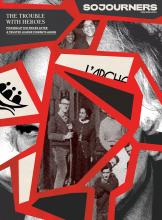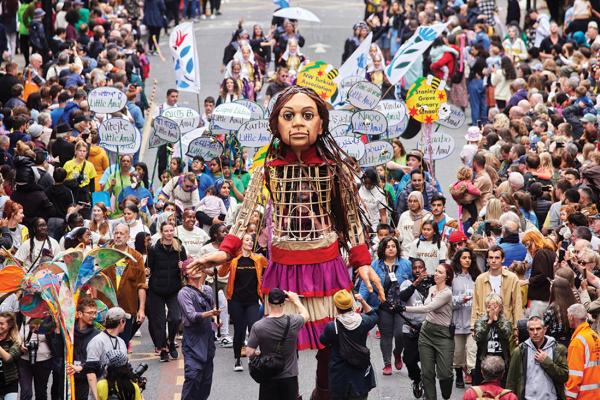LITTLE AMAL, an 11-foot-tall puppet of a 10-year-old Syrian refugee, is the star of “The Walk,” a live public production to honor millions of displaced children in the world. Named after the Arabic word for “hope,” Amal took her first steps at the Turkey-Syria border in July 2021. Since then, she’s traversed more than 5,500 miles in 13 different countries to share a poignant plea: “Don’t forget about us.”
Four puppeteers help Amal walk. One person sits inside her torso, visible through a cage, to operate her face, head, and feet; two move her hands with external rods; and one offers balance support from behind. Amal towers over the crowds who greet her, and the enormous space she occupies sends a powerful message: Forced displacement is an urgent and collective responsibility. The Walk embodies compassion, care, welcome, and belonging — core principles of Christianity. Amal, who has more than 170,000 followers on Instagram, has become a well-recognized humanitarian symbol, reminding us that displaced people are not “aliens” or “strangers.” They are our siblings, parents, children, neighbors, and friends.
Read the Full Article

